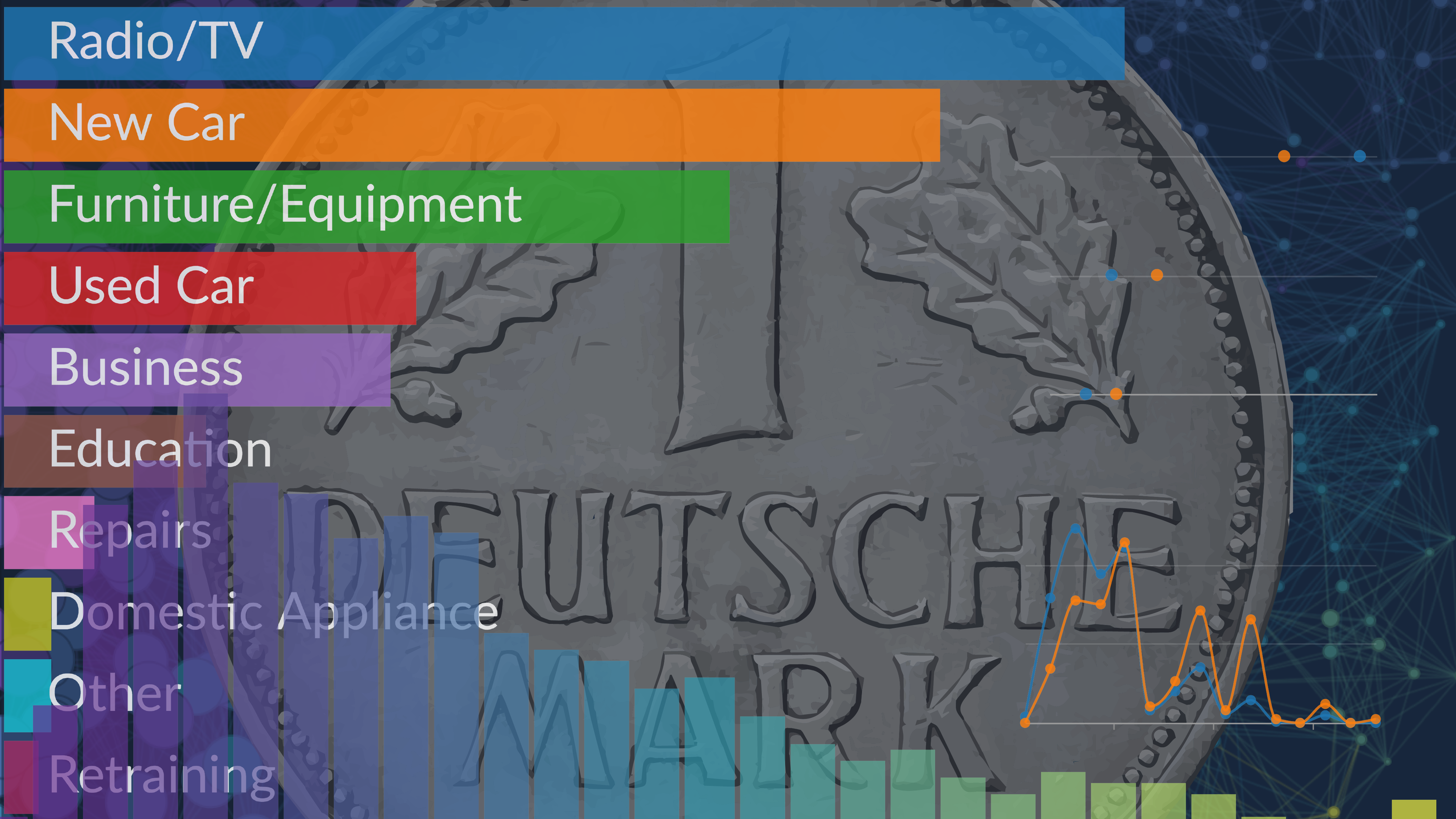Is Credit a Loan? Deconstructing the Mechanics of Borrowing
Yes, credit is a form of loan where a borrower receives funds from a lender with an agreement to repay it later. With credit, individuals can access money they do not have upfront and use it for various purposes, such as purchasing goods or paying for services, while promising to repay the borrowed amount along with any applicable interest or fees.
This financial arrangement allows people to manage their expenses and fulfill their financial needs even when their current funds are limited. Credit options may include credit cards, personal loans, mortgages, or lines of credit from financial institutions or other lenders.
Understanding the terms and conditions of any credit agreement is essential to make informed financial decisions and maintain a healthy credit history.

Credit: www.meridianlink.com
Defining Credit And Loan
Understanding the concepts of credit and loan is essential for anyone looking to navigate the world of finances. Both credit and loan play integral roles in borrowing and lending money, but they have distinct differences that should be clearly understood. In this section, we will delve into the definitions of credit and loan, providing you with a clear understanding of these financial terms.
What Is Credit?
Credit refers to the borrowing capacity that individuals or businesses have. It is a financial arrangement where one party, known as the creditor, extends money, goods, or services to another party, known as the debtor, with the expectation that the amount borrowed will be paid back at a later date. Credit enables individuals and businesses to make purchases or access funds without having to pay for them immediately.
Understanding Loans
Loans, on the other hand, represent a specific type of credit arrangement. A loan is a sum of money borrowed from a lender, typically a financial institution like a bank, with the promise of repayment over a specific period of time, often with interest. When someone takes out a loan, they receive a specific amount of money that must be paid back in installments, according to the agreed-upon terms and conditions.
Loans can be used for various purposes, such as purchasing a home, financing education, starting a business, or even consolidating debts. They provide individuals and businesses with the necessary funds to pursue their goals and ambitions while allowing for repayment over an extended period.
In conclusion, credit represents the overall borrowing capacity, while loans are specific arrangements within the broader context of credit. Understanding the distinctions between these terms is crucial when making financial decisions and managing your money responsibly.
Key Differences
Credit and loans are not the same. While credit allows you to borrow up to a certain limit, a loan gives you a specific amount of money upfront that you must repay over time with interest. Understanding these key differences is crucial for managing your finances effectively.
Understanding the key differences between credit and a loan can help you make informed financial decisions. While both credit and loans involve borrowing money, there are distinct factors that set them apart. Repayment terms and interest rates are two critical elements that vary between credit and loans.
Repayment Terms
Repayment terms refer to the conditions under which you are required to repay borrowed funds. When it comes to credit, repayment terms are typically revolving. This means that you have a maximum credit limit, and you can borrow and repay within that limit as per your convenience. Credit payments usually consist of the minimum payment due, which can change depending on the outstanding balance. This flexibility allows you to manage your monthly payments according to your financial situation.
Loans, on the other hand, have fixed repayment terms. When you borrow a loan, you agree on a specific repayment period and fixed monthly installments. These installments remain constant throughout the loan tenure, making it easier for you to plan your finances accordingly. Whether it’s a personal loan or a mortgage loan, the repayment terms are predetermined, giving you a clear understanding of how long it will take to repay the loan.
Interest Rates
Interest rates play a crucial role in determining the cost of borrowing. With credit, the interest rate is usually variable and can fluctuate over time. Credit card companies review and adjust interest rates periodically based on market conditions and your creditworthiness. The interest rates on credit cards tend to be higher in comparison to loans, reflecting the convenience and flexibility of credit.
Loans, on the other hand, offer fixed interest rates. Whether it’s a personal loan, auto loan, or mortgage loan, the interest rate for loans remains the same throughout the repayment period. This allows you to accurately calculate the interest expense upfront and plan your budget accordingly. Fixed interest rates provide stability and minimize any surprises in terms of payment amounts.
Impact On Credit Score
Credit utilization refers to the amount of credit being used in relation to the total credit available. It has a significant impact on an individual’s credit score. High credit utilization can negatively affect the credit score, while low credit utilization can have a positive impact.
It is generally recommended to keep credit utilization below 30% to maintain a healthy credit score. Keeping credit card balances low and paying off debts can help to reduce credit utilization and improve the overall credit score.
Loan repayment history is a crucial factor in determining one’s credit score. Timely and consistent repayment of loans is viewed favorably by credit reporting agencies and helps to build a positive credit history.
Missed or late payments, on the other hand, can have adverse effects on the credit score. It is essential to make loan repayments on time and in full to maintain a favorable credit standing.

Credit: www.mercer.com
Borrowing Considerations
When considering credit options, it’s important to understand that credit is not the same as a loan. While both involve borrowing money, there are key differences that can have an impact on your financial situation. To make an informed decision, it’s crucial to be aware of the purpose of funds and your financial responsibility.
Purpose Of Funds
Before obtaining credit, it’s essential to consider the purpose for which you need the funds. This will help determine the most suitable option for your needs. For example, if you’re planning to make a major purchase like a car or a house, a long-term loan with fixed interest rates may be the best choice. On the other hand, if you simply need some extra cash for unexpected expenses, a revolving line of credit or a credit card could provide the flexibility you require.
| Purpose | Recommended Credit Option |
|---|---|
| Major purchase | Long-term loan with fixed interest rates |
| Unexpected expenses | Revolving line of credit or credit card |
Financial Responsibility
When taking credit, it’s crucial to consider your financial responsibility. Borrowing money means entering into a commitment that requires diligent repayment. It’s essential to assess your ability to repay the borrowed amount in a timely manner. This includes understanding the interest rates, repayment terms, and any associated fees. By being financially responsible, you can avoid unnecessary interest charges, penalties, and potential damage to your credit score.
- Assess your ability to repay the borrowed amount in a timely manner
- Understand the interest rates, repayment terms, and associated fees
- Avoid unnecessary interest charges, penalties, and potential damage to your credit score
By carefully considering the purpose of funds and your financial responsibility, you can make a well-informed decision about whether credit is the right borrowing option for you.

Credit: www.scribd.com
Frequently Asked Questions Of Is Credit A Loan?
Is Credit Basically A Loan?
Yes, credit is essentially a form of loan where you can borrow money for purchases.
Is A Credit Card A Loan?
A credit card is not a loan, but it allows you to borrow money from the card issuer. By using your credit card, you are essentially borrowing money that you need to pay back later, either in full or in monthly installments with interest.
Is A Loan An Example Of Credit?
Yes, a loan is an example of credit. (8 words)
Is A Loan A Debit Or Credit?
A loan is a credit, as it increases the borrowing party’s liability.
Conclusion
Understanding the distinction between credit and loans is crucial for financial literacy. While credit provides a financial cushion, loans involve borrowing a specific sum with a repayment plan. Both play vital roles in personal and business finance, and comprehending their differences can empower individuals to make informed financial decisions.
{ “@context”: “https://schema.org”, “@type”: “FAQPage”, “mainEntity”: [ { “@type”: “Question”, “name”: “Is credit basically a loan?”, “acceptedAnswer”: { “@type”: “Answer”, “text”: “Yes, credit is essentially a form of loan where you can borrow money for purchases.” } } , { “@type”: “Question”, “name”: “Is A credit card a loan?”, “acceptedAnswer”: { “@type”: “Answer”, “text”: “A credit card is not a loan, but it allows you to borrow money from the card issuer. By using your credit card, you are essentially borrowing money that you need to pay back later, either in full or in monthly installments with interest.” } } , { “@type”: “Question”, “name”: “Is a loan an example of credit?”, “acceptedAnswer”: { “@type”: “Answer”, “text”: “Yes, a loan is an example of credit. (8 words)” } } , { “@type”: “Question”, “name”: “Is a loan a debit or credit?”, “acceptedAnswer”: { “@type”: “Answer”, “text”: “A loan is a credit, as it increases the borrowing party’s liability.” } } ] }




